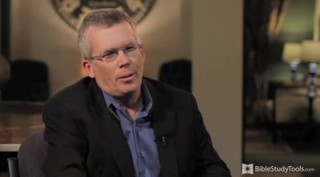
- Recent Translations
- All Translations
Jeremías 29
Share
Settings
Carta a los exiliados
1 Esta es la carta que el profeta Jeremías envió desde Jerusalén al resto de los ancianos que estaban en el exilio, a los sacerdotes y los profetas, y a todo el pueblo que Nabucodonosor había desterrado de Jerusalén a Babilonia.Mensaje de Semaías
24 También a Semaías hijo de Nejelán le comunicarásVideos for Jeremías 29
Jeremías 29 Commentary
Chapter 29
Two letters to the captives in Babylon; In the first, they are recommended to be patient and composed. (1-19) In the second, judgments are denounced against the false prophets who deceived them. (20-32)
Verses 1-7 The written word of God is as truly given by inspiration of God as his spoken word. The zealous servant of the Lord will use every means to profit those who are far off, as well as those who are near him. The art of writing is very profitable for this end; and by the art of printing it is rendered most beneficial for circulating the knowledge of the word of God. God's sending to the captives by this letter would show that he had not forsaken them, though he was displeased, and corrected them. If they live in the fear of God, they may live comfortably in Babylon. In all conditions of life, it is our wisdom and duty not to throw away the comfort of what we may have, because we have not all we would have. They are directed to seek the good of the country where they were captives. While the king of Babylon protected them, they must live quiet and peaceable lives under him, in all godliness and honesty; patiently leaving it to God to work deliverance for them in due time.
Verses 8-19 Let men beware how they call those prophets whom they choose after their own fancies, and how they consider their fancies and dreams to be revelations from God. False prophets flatter people in their sins, because they love to be flattered; and they speak smoothly to their prophets, that their prophets may speak smoothly to them. God promises that they should return after seventy years were accomplished. By this it appears, that the seventy years of the captivity are not to be reckoned from the last captivity, but the first. It will be the bringing to pass of God's good word to them. This shall form God's purposes. We often do not know our own minds, but the Lord is never at an uncertainty. We are sometimes ready to fear that God's designs are all against us; but as to his own people, even that which seems evil, is for good. He will give them, not the expectations of their fears, or the expectations of their fancies, but the expectations of their faith; the end he has promised, which will be the best for them. When the Lord pours out an especial spirit of prayer, it is a good sign that he is coming toward us in mercy. Promises are given to quicken and encourage prayer. He never said, Seek ye me in vain. Those who remained at Jerusalem would be utterly destroyed, notwithstanding what the false prophets said to the contrary. The reason has often been given, and it justifies the eternal ruin of impenitent sinners; Because they have not hearkened to my words; I called, but they refused.
Verses 20-32 Jeremiah foretells judgments upon the false prophets, who deceived the Jews in Babylon. Lying was bad; lying to the people of the Lord, to delude them into a false hope, was worse; but pretending to rest their own lies upon the God of truth, was worst of all. They flattered others in their sins, because they could not reprove them without condemning themselves. The most secret sins are known to God; and there is a day coming when he will bring to light all the hidden works of darkness. Shemaiah urges the priests to persecute Jeremiah. Their hearts are wretchedly hardened who justify doing mischief by having power to do it. They were in a miserable thraldom for mocking the messengers of the Lord, and misusing his prophets; yet in their distress they trespass still more against the Lord. Afflictions will not of themselves cure men of their sins, unless the grace of God works with them. Those who slight the blessings, deserve to lose the benefit of God's word, like Shemaiah. The accusations against many active Christians in all ages, amount to no more than this, that they earnestly counsel men to attend to their true interest and duties, and to wait for the performance of God's promises in his appointed way.
Jeremías 29 Commentaries
Chapter Summary
INTRODUCTION TO JEREMIAH 29
Thus chapter contains a letter of Jeremiah to the captives in Babylon; and gives an account of another sent from thence by Shemaiah to the people at Jerusalem; and is closed with threatening him with punishment for so doing. Jeremiah's letter concerns both the captives at Babylon, and the people left at Jerusalem, The persons to whom and by whom it was sent, and the time of writing and sending it, are mentioned in Jer 29:1-3; and though the prophet was the amanuensis, God was the author of it, as well as of their captivity, Jer 29:4; the contents of, it, respecting the captives, are advices to them to provide for their comfortable settlement in Babylon, and not think of returning quickly, by building houses, planting gardens, marrying, and giving in marriage, Jer 29:5,6; and to seek and pray for the prosperity of the place where they were; in which their own was concerned, Jer 29:7; to give no heed to their false prophets and diviners, Jer 29:8,9; and to expect a return to Jerusalem at the end of seventy years; which they might be assured of, since God had resolved upon it in his own mind, Jer 29:10,11; and especially if they called upon him, prayed to him, and sought him heartily, Jer 29:12-14; the other part of the letter respects the Jews in Jerusalem; concerning whom the captives are directed to observe, that both the king and people should suffer much by sword, famine, pestilence, and captivity, with the reason of it, Jer 29:15-19; particularly it is foretold, that Ahab and Zedekiah, two lying prophets, should be made an example of vengeance; and a proverbial curse should be taken of them, because of their villany, lewdness, and lies, Jer 29:20-23; next follows some account of Shemaiah's letter from Babylon, to the people and priests at Jerusalem, stirring them up against Jeremiah the prophet; which came to be known, by the priests reading it to him, Jer 29:24-29; upon which Shemaiah is threatened with punishment, and his seed after him, Jer 29:30-32.


